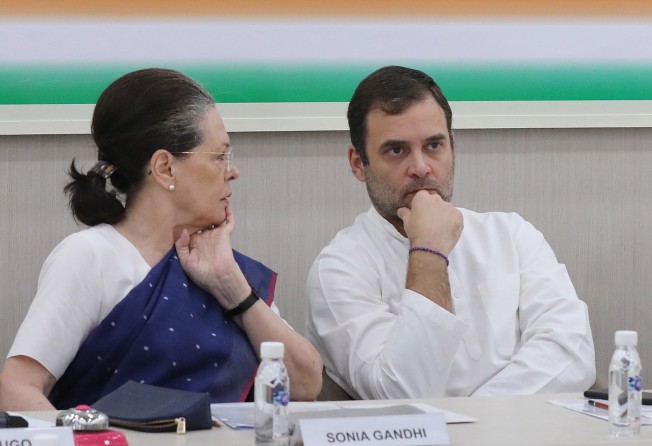India’s Delhi elections: a rejection of the BJP’s divisive politics but also the once-great Congress party

With reference to your report “Kejriwal’s Delhi victory has the BJP blushing. Can he fight Modi for India?” (February 12), it is true that Mr Arvind Kejriwal’s Aam Aadmi Party (AAP) comprehensively trounced the ruling Bharatiya Janata Party, led by Indian Prime Minister Narendra Modi, in the Legislative Assembly elections in the capital city of New Delhi, winning 62 of the 70 seats.
The BJP had carried out a rancorous campaign, touching new lows in public conduct. The people of Delhi kept their cool and voted for the AAP, which has done wholesome work on the ground. In doing so, the people have also rejected the BJP’s divisive politics based on religious considerations.
Prime Minister Modi should counsel his party members to cease indulging in religious politics and whipping up an unnecessary frenzy over emotional issues. His image will be tarnished if his party members do not uphold high standards in their debates and demeanour. The Indian economy is in the doldrums and should be top priority.
Religious bigotry has no place in this age of digitisation and technology. Jobs and homes are a concern of the young everywhere in the world. The gods we worship should be of private and personal concern.
A major tragedy of these elections is that the monolithic Indian National Congress, which administered the capital city for 15 years before the AAP came to power in 2013, did not win a single seat. Unless the Congress reinvents itself and becomes more relevant, this great party, once led by national leaders Mahatma Gandhi and Jawaharlal Nehru, faces extinction.
Rahul Gandhi, the current face of the party, should pick up the gauntlet, roll up his sleeves and work on the problems of the common people. Tweets give a leader currency but do not win elections. However, resolving the sanitation, drinking water, electricity and unemployment issues of ordinary people can win elections. Rahul Gandhi needs to understand this if he wishes to lead India some day.
Rajendra Aneja, Mumbai
India’s Western values? It’s China that has embraced Karl Marx
I am amused that often the most caustic “anti-Western” letters to these columns arrive from Canada, a well-rounded country known for its tolerance. As an example, P.Y. Chan from Ontario (“Western values would never take off in China”, February 15) attempted to showboat China’s recent accomplishments by denigrating India’s democratic political system and arguing that it shows the pitfalls of Western values. Yet, it is India that is culturally advanced, with yoga and meditation having had a profound influence on world civilisation.
Unfortunately, China’s Communist Party sees the intrinsic freedom of qigong and Taoism as threats to its centralised authority. It should be noted that communism and Marxism are not culturally Chinese. My impression is that the only “civilising” influence that China now wants to project to the rest of the world is economic and military power. These 19th century “Western” values are not what the world needs from China.
Frank Lee, Wan Chai
India’s Citizenship Amendment Act echoes US laws
I write in response to “Protest against law seen as anti-Muslim takes page from HK” (February 10). While there have been protests in India against the Citizenship Amendment Act, the article fails to mention there have also been others in support of the act.
Western, particularly American, intellectuals are hypocrites for opposing the Citizenship Amendment Act, when a very similar piece of legislation, the Lautenberg Amendment, exists in the United States, initially devised for minorities from the Soviet Union. The Specter Amendment extended this programme to fast-tracking the entry of minorities from Iran – Jews, Christians, Parsees and Bahais but excluding Muslims – into the US. These laws enjoy wide support in the US across the political spectrum.
But in India, the Citizenship Amendment Act, which grants citizenship to heavily persecuted religious minorities from Pakistan, Bangladesh and Afghanistan, is opposed supposedly because it does not include Muslims. Could someone ask these intellectuals why Muslims would be discriminated against in three Muslim-majority countries? When Hindus, Sikhs, Jains and other religious communities are discriminated against there, where are they expected to go?
Many Indians are firmly behind Prime Minister Narendra Modi’s decision to enact the Citizenship Amendment Act and they consider those who oppose it to be anti-nationals.
Dr Kailash Singh, Pok Fu Lam